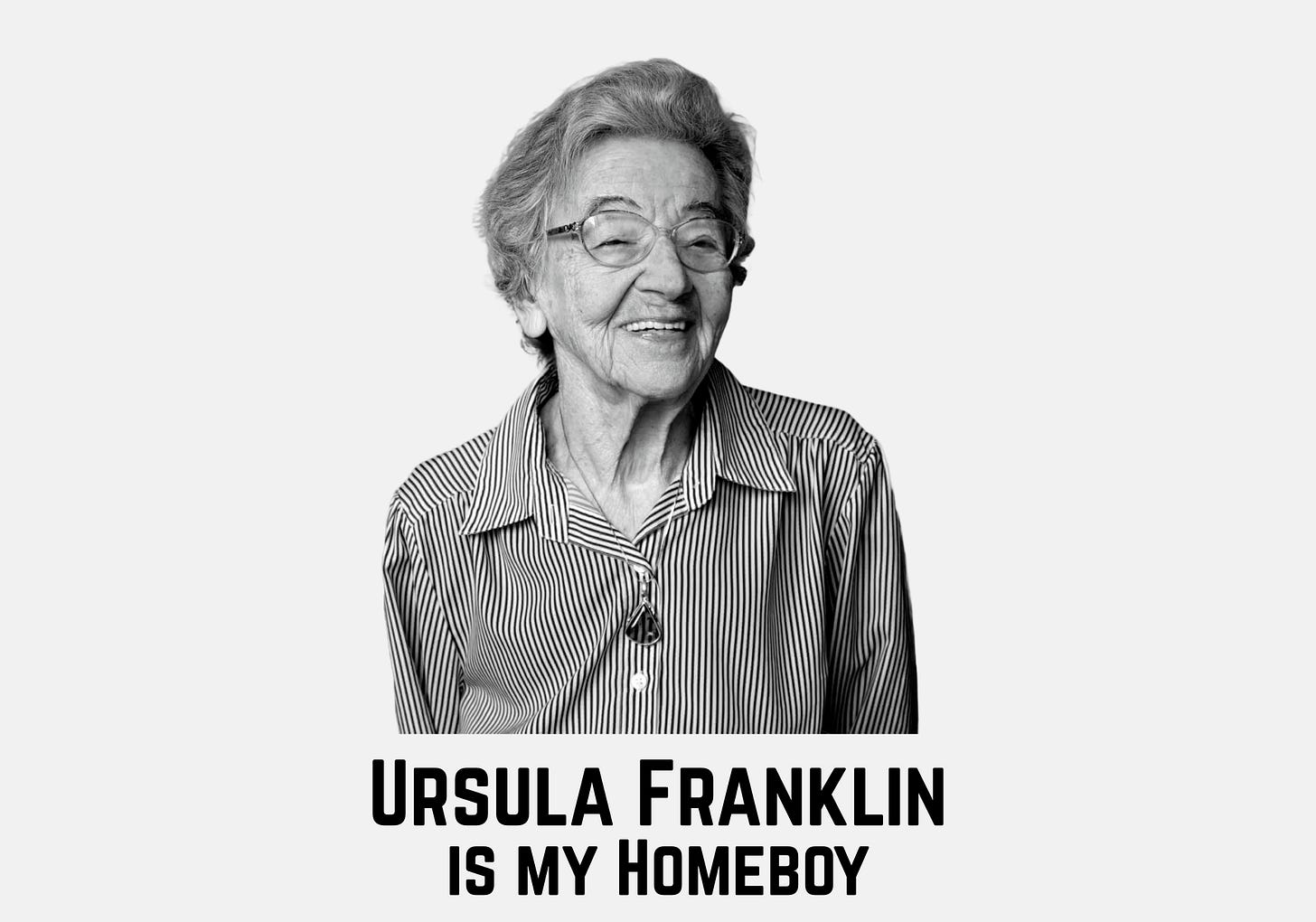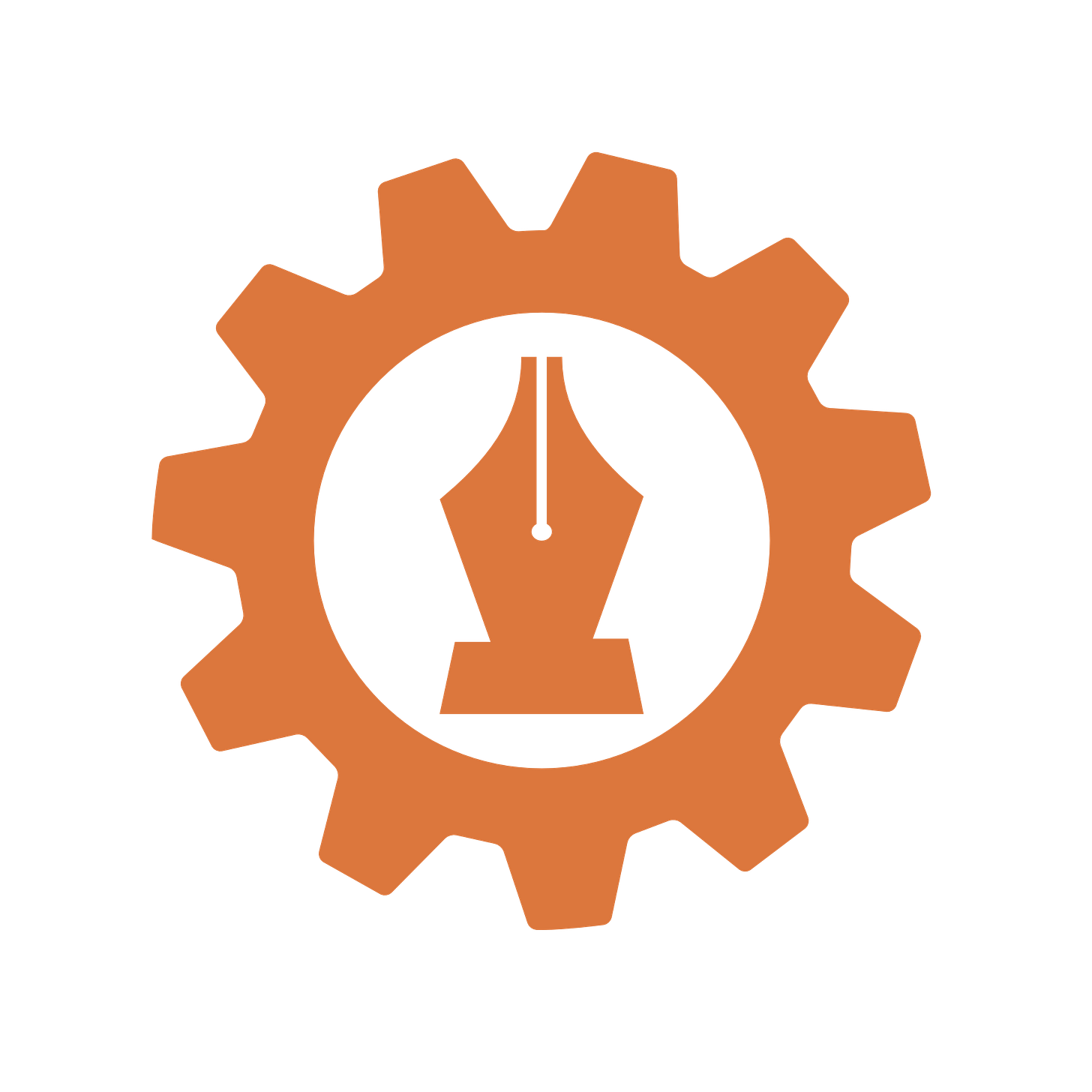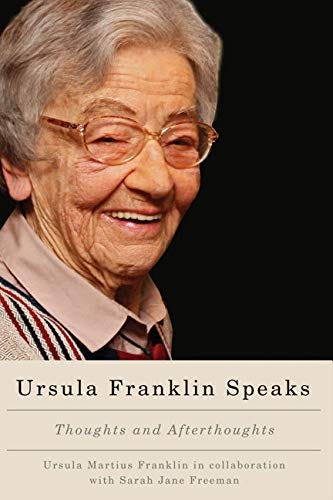Ursula Speaks
We ought to listen
Thank you for being here. As always, these essays are free and publicly available without a paywall. If my writing has been valuable to you, please consider sharing it with a friend or supporting me as a patron with a paid subscription. Your support helps keep my coffee cup full.
Early last year, in the middle of a podcast conversation I was recording, the conversation turned—as many of mine do these days—to AI. I offhandedly made the comment that some of the best stuff I've read on AI was written almost forty years ago, long before the invention of the large language model or even the GPU.
It was only a few months later when the transcript was published that I noticed they had misquoted me (no doubt with the best of intentions) as saying four rather than forty.
One of those forty-year-old voices, and perhaps my most cherished, is Ursula Martius Franklin. Dr. Franklin was an accomplished academic, a metallurgist by trade and a long-time professor at the University of Toronto. But what sets her apart in my mind and heart is the path she charted in leveraging her academic expertise to pursue and articulate a vision of technology and its complicated relationship with the good life. It’s a path I’m trying to walk myself.
Your first exposure to Ursula should without a doubt be her 1989 CBC Massey Lecture series The Real World of Technology. After the fact, these oral lectures were transcribed and expanded into a written document of the same name, which, by the way, is available for free on the Internet Archive. In these lectures, she eloquently and concisely introduces her audience to some of the core ideas about technology that we would do well to consider today, like the distinction between prescriptive and holistic models of work.
I've long joked that I'm going to make a custom T-shirt with Dr. Franklin's face on the front and a line of text underneath proclaiming "Ursula Franklin is my Homeboy." Perhaps a bit irreverent, but I like to think that Dr. Franklin would find it endearing. She was anything but a dry academic. If you pay attention, her dry and at times sardonic sense of humor comes through even in the transcripts of her speeches. Oh, what I would give to have had the chance to sit down with her face-to-face.
I'm thinking about Ursula again this week as I prepare for a few upcoming talks on AI, one later this week and a few more next month. As I reflect on what to share, I've been thinking about how the last month of my own life is also shaping the way I see AI.
Whether you like it or not, disruption and change reveal the foundation you're building on. When things are going smoothly it is easy to prop up the illusion that we are in control. When disruption occurs—and it is a when, not an if—the carefully assembled structure of our life will be put to the test. Maybe it's the destruction of your neighborhood due to the Eaton Fire. Maybe it's the coming wave of Artificial Intelligence and the societal response to it. Whatever the source, your foundation will eventually be tested.
I suspect that many of us are ill-prepared. At the deepest level, many of you know where my convictions lie. As a follower of Jesus, I believe that he is the only true source of truth, meaning, and stability. The trials and tribulations of the past month have done nothing but remind me of that.
Some of you reading this may also find your hope there. Others of you may find yourself in different places in your journey. Regardless of where you find yourself and your foundation, I hope that you'll take a few moments to reflect and consider the source of meaning and truth in your life.
Yesterday while I was preparing to fly up to the Bay for a meeting, I was catching up on some essays I'd pinned in the overflowing "to read later" list. One of them was an essay by Erin Kissane over at wreckage/salvage (h/t Audrey Watters for the link). As soon as I saw the title of her piece "Ursula's List," I was in. Fellow lovers of Dr. Franklin are regrettably few and far between—something I am doing my best to fix!
In her piece, Erin surfaces quotes from a few of Dr. Franklin's less well-known talks, collected in an anthology Ursula Speaks. If only Ursula was on Substack. Getting ready for my flight to take off, I quickly downloaded the e-book version and started reading “When the Seven Deadly Sins Became the Seven Cardinal Virtues,” one of Ursula's talks included in the volume.
The title of the talk is a reference to a Lewis Mumford quote:
Lewis Mumford, the great historian of technology, once pointed out that a very quick way to describe the transition into the modern industrial society – and he spoke about the Industrial Revolution – is to say that the Seven Deadly Sins of the Middle Ages have become the Seven Cardinal Virtues of the Industrial Age. That is very well put, but it is more than a facile sentence. Suddenly greed and envy, avarice and luxury, gluttony and all those things that the Middle Ages considered deadly sins are the very things that drive the machinery of a consumer society that puts private gain before communal welfare, and that isn’t that recent.
The point that Mumford, and by extension, Ursula, is making here is that the aims of our pursuits matter. Our vision of the good matters. And this vision of the good, encapsulated and articulated in our values, becomes the foundation from which we act.
The inversion of virtues and vices that Mumford points out is undoubtedly linked to our postmodern unmooring from the concept of absolute truth. If you're speaking "your truth," by definition there can be no stable or consistent definition of virtue or vice. We're adrift and this adriftness will be the source of great pain for us in these next few years as we face the storm of AI. Trust me, as someone still reeling from the aftermath of a firestorm that disrupts everything you've come to know as normal—it is a challenging experience.
AI will test us. It will reveal our foundations. If we are to weather the storm, we'll need to repair the foundations. If not, we're in for quite a ride. Back to Usrula:
It is my firm belief that no amount of practical action will make a difference if it is not combined with the admittance that there are moral standards – religious, ethical beliefs that matter as much as people matter. We have to stand not only in favour of practical measures but also in favour of a moral standard that is not negotiable: people’s lives are not negotiable; the fact that we are brothers and sisters is not negotiable; and the inequality of suffering is not acceptable. We have to say that both in our words and in our lives.
If we hope to be able to make it through the coming wave of AI disruption still standing, these are the kinds of discussions we must be having:
What are our moral standards?
How are we using them to evaluate AI?
What virtues are we pursuing?
Where have we substituted virtue for vice?
Rather than what, who. Whose benefits? Whose risks?
Ursula speaks. We should listen.
Got a thought? Leave a comment below.
The Book Nook
If you’ve already read or listened to The Real World of Technology and are looking for more, I would recommend you pick up Ursula Franklin Speaks.
The Professor Is In
Given all the craziness in my life over the past month, the semester has gotten off to a slow start. I’m so thankful for the way my colleagues have helped to support me in ways big and small over the past month.
Leisure Line
I had some extra time after taking BART up from SFO into San Francisco yesterday and decided to take the ferry over to Tiburon for my evening meeting. What a beautiful day and a nice ride!
Still Life
A shot of the San Francisco Bay from the deck behind the Ferry Building.







Ursula Franklin—what a gift! I got her last book and am reading it. She is saying what I’ve thought for years but never found the words (or maybe the courage?) to say. Thank you so very much. Please keep writing.
Ask and ye shall receive: https://hmm.vic.ooo/2025/02/12/for-josh-brake/